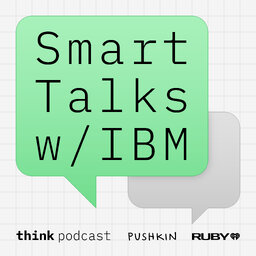Digital Comics
How has the digital revolution changed the way readers access comic books? Guest host Christian Sager joins the show to talk about digital comics.
Learn more about your ad-choices at https://www.iheartpodcastnetwork.com
In 1 playlist(s)
TechStuff
TechStuff is getting a system update. Everything you love about TechStuff now twice the bandwidth wi…Social links
Follow podcast
Recent clips

TechSupport: What Happens When AI Undresses You?
25:58

The Story: How Science Fiction Changes the Real World
30:44

NASA and AI: Decoding Our Universe
33:53
 TechStuff
TechStuff